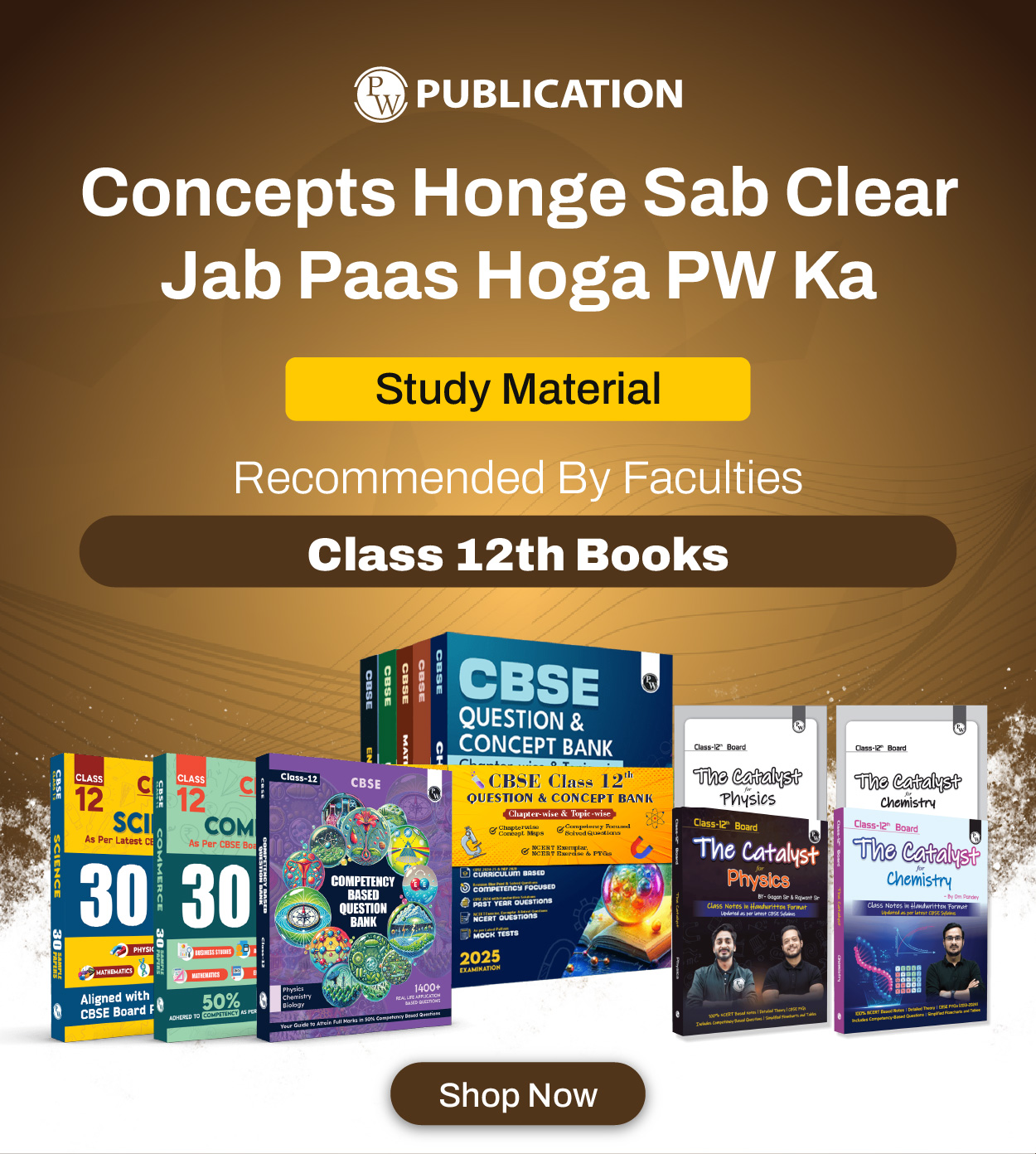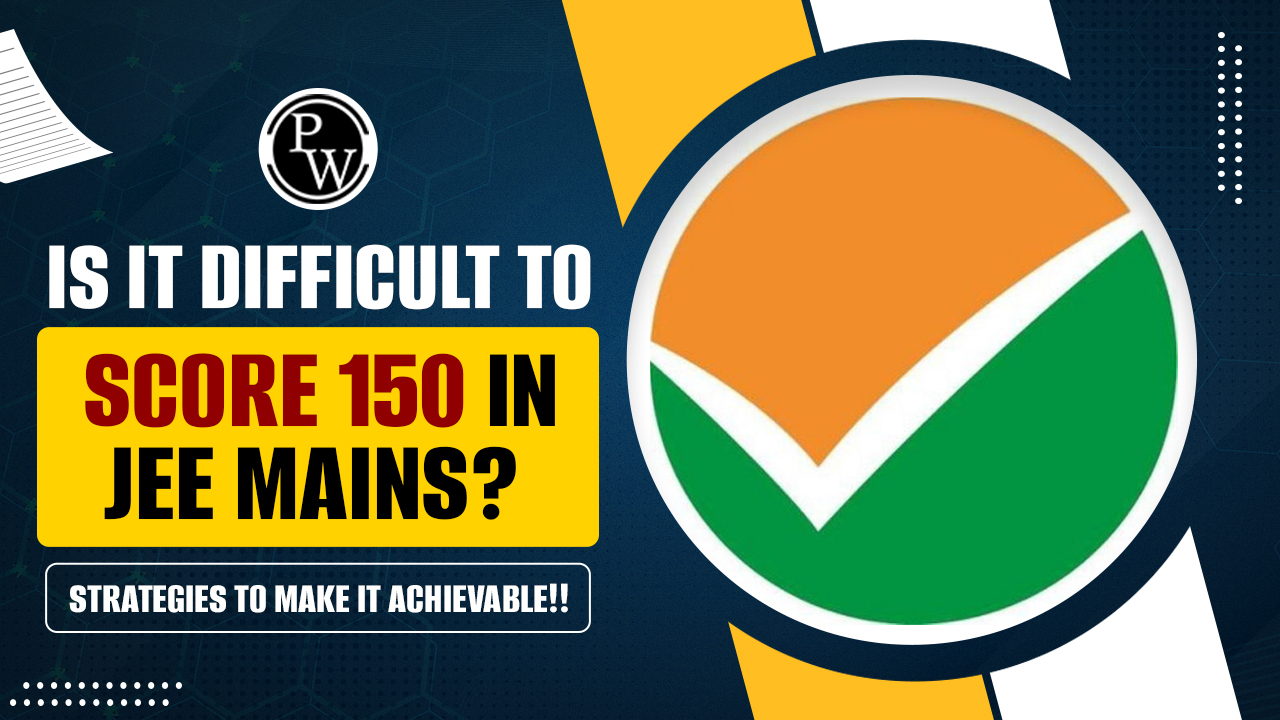How to Become a Topper in Class 12 Board Exam?

How to Become a Topper in Class 12 Board Exam:- Facing board exams can be quite a challenge for students at any level. Transitioning from the Class X exams to the more demanding Class XII ones, particularly the Higher Secondary Certificate (HSC) exams, adds another layer of complexity. These exams carry considerable weight, as their results can significantly influence a student's future academic and career opportunities. Naturally, when exam dates are announced, it's common for students to feel nervous or tense.
However, students must stay calm as worrying won't help. Instead of letting fear take control, be confident with your Class 12 board exam preparation as this will lead you to success. With careful planning and dedication, students can not only overcome their worries but also excel in the Class 12 board exams. Here are some valuable tips to guide students towards acing their exams effortlessly.
Class 12 Preparation Tips Subject Wise
-
Mathematics
-
Practice regularly: Mathematics requires consistent practice to master concepts and improve problem-solving skills. Allocate dedicated time for practising different types of problems.
-
Understand concepts: Rather than rote memorisation, focus on understanding the underlying principles and concepts. This will help you tackle a variety of problems more effectively.
-
Take help when needed: Don't hesitate to ask your teachers or friends for help if you face any difficulties. Mathematics can sometimes be challenging, and seeking clarification early can prevent misunderstandings.
-
Solve previous years' papers: Practicing CBSE Class 12th previous years' question papers will familiarise you with the CBSE Class 12 exam pattern and the types of questions asked. It will also help you manage your time better during the exam.
-
Science (Physics, Chemistry, Biology)
-
Conceptual understanding: Science subjects require a strong conceptual understanding. Focus on understanding the fundamental principles and theories behind each topic.
-
Practical application: Science is all about real-world applications. Try to relate theoretical concepts to practical scenarios to deepen your understanding.
-
Diagrams and illustrations: In subjects like Biology and Physics, diagrams and illustrations can help you visualize concepts better. Practice drawing and labelling diagrams to supplement your theoretical knowledge.
-
Practice numerical problems: In Chemistry and Physics, numerical problems are often an integral part of the exam. Regular practice of numerical problems will improve your problem-solving skills and accuracy.
-
Languages (English, Hindi, etc.)
-
Reading comprehension: Enhance your reading comprehension skills by reading a variety of texts, including fiction, non-fiction, and news articles. Pay attention to vocabulary, context, and main ideas.
-
Writing skills: Practice writing essays, letters, and summaries regularly to improve your writing skills. Pay attention to grammar, punctuation, and sentence structure.
-
Vocabulary building: Expand your vocabulary by learning new words regularly. Use a dictionary or vocabulary-building apps to discover new words and their meanings.
-
Practice speaking: If the exam includes a speaking component, practice speaking aloud in front of a mirror or with a study partner. Focus on pronunciation, fluency, and clarity of expression.
-
Social Sciences (History, Geography, Political Science, Economics)
-
Historical events and dates: Memorise important historical events, dates, and timelines. Create timelines or mnemonic devices to aid memory recall.
-
Map skills: Develop map-reading skills for Geography. Practice identifying and labelling geographical features on maps.
-
Current affairs: Stay updated with current affairs, especially in subjects like Political Science and Economics. Follow news outlets, read newspapers, and watch documentaries to understand contemporary issues.
-
Analytical skills: Develop analytical skills by critically analyzing historical events, economic trends, and political developments. Practice writing analytical essays to express your opinions coherently.
-
Commerce (Accountancy, Business Studies, Economics)
-
Conceptual clarity: Understand accounting principles and concepts thoroughly. Practice solving different types of accountancy problems to reinforce your understanding.
-
Case studies: In subjects like Business Studies, familiarise yourself with case studies and practice analyzing them critically. Understand the concepts and theories behind business strategies and management practices.
-
Economic theories: In Economics, focus on understanding economic theories and models. Practice applying these theories to real-world scenarios to develop a deeper understanding.
-
Financial statements: Practice analyzing and interpreting financial statements in Accountancy. Understand the structure of balance sheets, income statements, and cash flow statements.
-
Arts/Humanities (History, Political Science, Sociology, Psychology, etc.)
-
Critical thinking: Develop critical thinking skills by analyzing historical events, political theories, social phenomena, and psychological concepts critically.
-
Interdisciplinary approach: Explore interdisciplinary connections between different subjects within the humanities. For example, relate historical events to sociopolitical contexts or psychological theories to real-life behaviours.
-
Research skills: Develop research skills by conducting independent research on topics of interest within humanities subjects. Practice citing sources correctly and synthesising information from multiple perspectives.
-
Essay writing: Sharp your essay writing skills by structuring your arguments logically, providing evidence to support your claims, and presenting your ideas coherently. Pay attention to clarity of expression and adherence to academic conventions.
How to Become a Topper in Class 12 Board Exam?
Achieving good scores in the Class 12 board exams requires dedication, strategic planning, and effective study techniques. Here are ten key points to become a topper, including specific subject-related advice:
-
Understand the Syllabus: familiarise yourself thoroughly with the Class 12 syllabus for each subject. Knowing what topics are covered will help you organise your study schedule efficiently.
-
Create a Study Schedule: Develop a structured study timetable that allocates sufficient time to each subject. Balance your study sessions to cover all subjects equally.
-
Prioritise Weak Areas: Identify your weaker subjects or topics and prioritize them in your study schedule. Allocate more time to these areas to strengthen your understanding.
-
Effective Time Management: Practice effective time management during exams. Allocate specific time slots for each question and stick to them to ensure you complete the paper within the allotted time.
-
Practice Regularly: Regular practice is key to mastering any subject. Solve previous years' question papers and sample papers to familiarise yourself with the exam pattern and improve your problem-solving skills.
-
Utilise Resources: Make the most of available resources such as textbooks, reference books, online tutorials, and educational websites to enhance your understanding of subjects.
Books for Class 12 Board Exam
Selecting the right study materials is crucial for success in the Class 12 board exams. The books for Class 12 board exam preparation are meticulously crafted to cover the syllabus thoroughly, offering clear explanations and ample practice opportunities. Written by faculty, these books are crafted to meet the specific needs of students, providing comprehensive support.
How to Become a Topper in Class 12 Board Exam FAQs
Q1. What are some effective study techniques to excel in subjects like Mathematics, Science, and Humanities?
Ans. Effective study techniques include understanding concepts thoroughly, practising regularly, solving sample papers and previous years' question papers, making concise notes, and seeking clarification for doubts promptly.
Q2. What are effective study techniques?
Ans. Understanding concepts thoroughly, regular practice, and solving sample papers.
Q3. How can I overcome exam anxiety?
Ans. Practice relaxation techniques, maintain a positive mindset, and prioritize self-care.
Q4. Are there any specific strategies for revising the entire syllabus before the exam?
Ans. Create a comprehensive revision plan, review notes regularly, focus on key concepts and topics.








